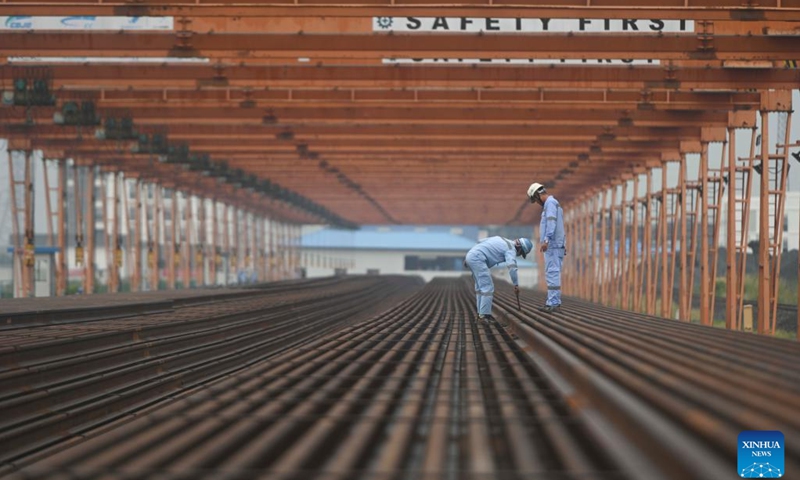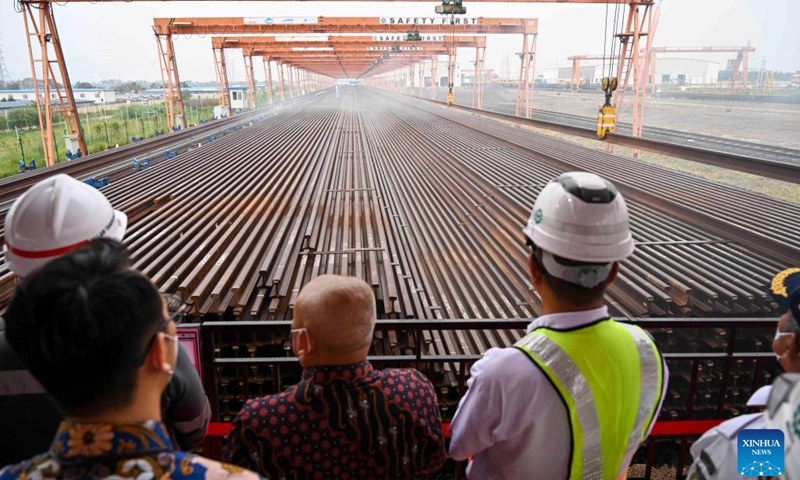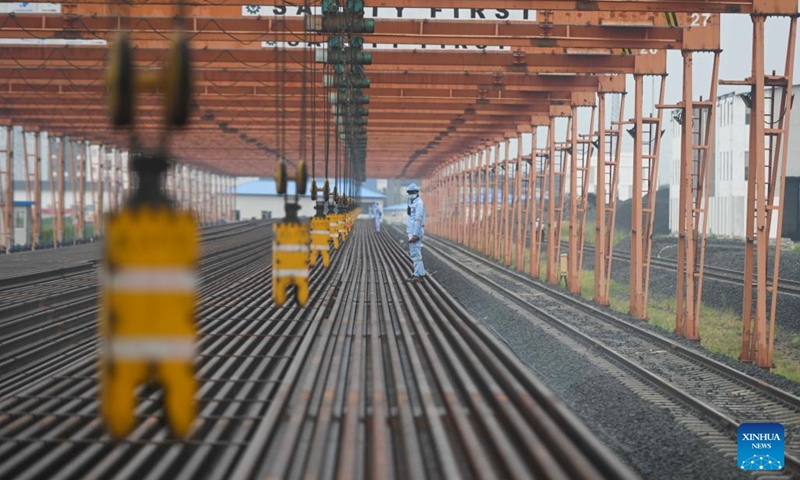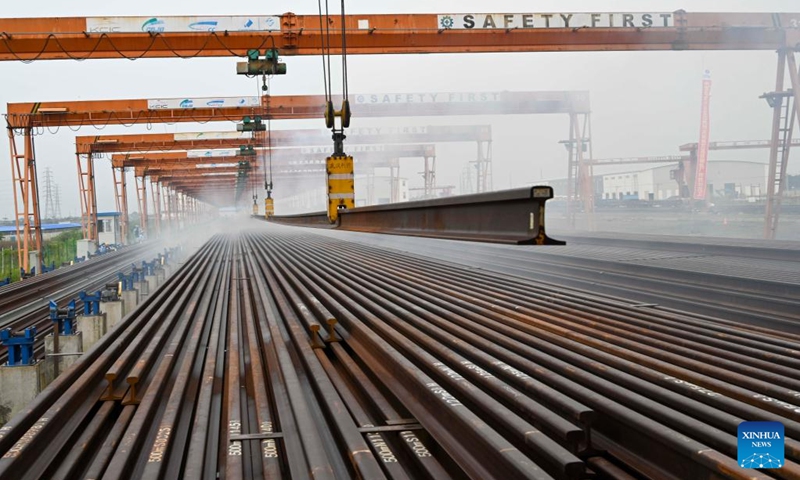
Staff members work during a ceremony marking the completion of the welding of all 500-meter rails needed for the Jakarta-Bandung High-Speed Railway, in Bandung, Indonesia, Jan. 17, 2023.(Photo: Xinhua)

People attend a ceremony marking the completion of the welding of all 500-meter rails needed for the Jakarta-Bandung High-Speed Railway, in Bandung, Indonesia, Jan. 17, 2023.(Photo: Xinhua)

Staff members work during a ceremony marking the completion of the welding of all 500-meter rails needed for the Jakarta-Bandung High-Speed Railway, in Bandung, Indonesia, Jan. 17, 2023.(Photo: Xinhua)

The last long rail is seen during a ceremony marking the completion of the welding of all 500-meter rails needed for the Jakarta-Bandung High-Speed Railway, in Bandung, Indonesia, Jan. 17, 2023.(Photo: Xinhua)
The welding of all 500-meter rails needed for the Jakarta-Bandung High-Speed Railway was completed on Tuesday, laying a solid foundation for the completion of track laying in mid-February this year.
A total of 1,168 pieces of 500-meter-long steel rails are needed for the 142.3-km line, and each of those long rails was welded in 15 steps from 50-meter steel rails imported from China. The work has been jointly completed by Chinese and Indonesian employees.
The Chinese Construction Consortium used a complete set of Chinese long rail welding equipment at Tegualluar Rail Welding Base, the first rail welding base for high-speed railway outside China. The base adopts Chinese equipment, technology and standards, with innovations to adapt to the high temperature and high humidity in Indonesia.
The high-speed line, a landmark project under the China-proposed Belt and Road Initiative, connects Indonesia's capital Jakarta and its fourth-largest city Bandung, which is also the capital of West Java province.
With a design speed of 350 km per hour, the railway will cut the journey between Jakarta and Bandung from over three hours to around 40 minutes.
